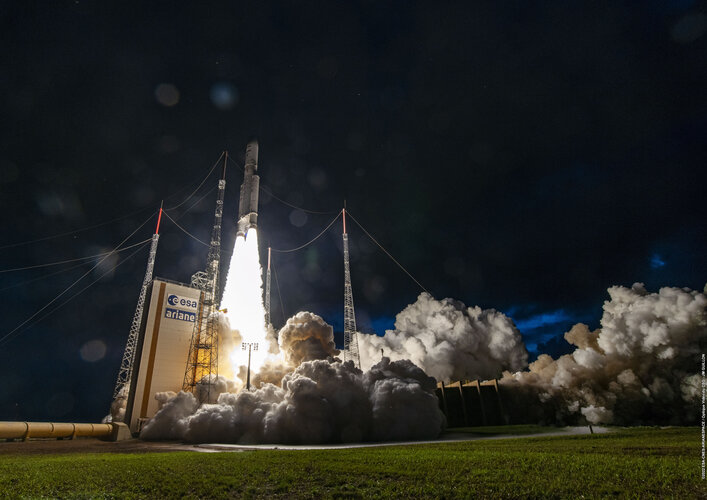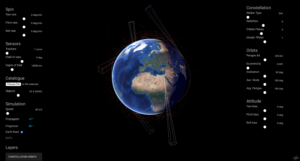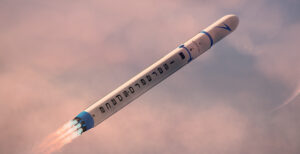A Long History of Flowing Water Recorded in Clay-Bearing Sediments on Mars
Thursday, 23 June 2022 10:29 A region on Mars may have been repeatedly habitable until relatively late in Martian history, says a new paper by Planetary Science Institute Senior Scientist Catherine Weitz.
Some of the most extensively preserved landforms on Mars created by running water on its surface are found within the Margaritifer Terra region where deposits of clay-bearing sediments have been identified. "The pres
A region on Mars may have been repeatedly habitable until relatively late in Martian history, says a new paper by Planetary Science Institute Senior Scientist Catherine Weitz.
Some of the most extensively preserved landforms on Mars created by running water on its surface are found within the Margaritifer Terra region where deposits of clay-bearing sediments have been identified. "The pres NASA's Curiosity Captures Stunning Views of a Changing Mars Landscape
Thursday, 23 June 2022 10:29 Striking rock formations documented by the rover provide evidence of a drying climate in the Red Planet's ancient past.
For the past year, NASA's Curiosity Mars rover has been traveling through a transition zone from a clay-rich region to one filled with a salty mineral called sulfate. While the science team targeted the clay-rich region and the sulfate-laden one for evidence each can offe
Striking rock formations documented by the rover provide evidence of a drying climate in the Red Planet's ancient past.
For the past year, NASA's Curiosity Mars rover has been traveling through a transition zone from a clay-rich region to one filled with a salty mineral called sulfate. While the science team targeted the clay-rich region and the sulfate-laden one for evidence each can offe First Ariane 5 launch of 2022 is a success for Malaysia and India clients
Thursday, 23 June 2022 10:29 On Wednesday, June 22, 2022 at 06:50 pm local time, an Ariane 5 launcher lifted off from the Guiana Space Center, Europe's Spaceport in Kourou, French Guiana (South America), successfully orbiting two geostationary telecommunication satellites, MEASAT-3d and GSAT-24.
"With this Ariane 5 mission, Arianespace is honored to support the ambitions of two key actors in the Asia-Pacific region: M
On Wednesday, June 22, 2022 at 06:50 pm local time, an Ariane 5 launcher lifted off from the Guiana Space Center, Europe's Spaceport in Kourou, French Guiana (South America), successfully orbiting two geostationary telecommunication satellites, MEASAT-3d and GSAT-24.
"With this Ariane 5 mission, Arianespace is honored to support the ambitions of two key actors in the Asia-Pacific region: M Lockheed Martin partners with US Indo-Pacific Command in Multi-Domain Experiments
Thursday, 23 June 2022 10:29 Lockheed Martin paired its DIAMONDShield battle management system with four Virtualized Aegis Weapon System (VAWS) nodes deployed across hundreds of miles to successfully demonstrate multi-domain operations during a recent U.S. military exercise.
The exercise, called Valiant Shield 2022, is a biennial training activity involving thousands of U.S. military personnel and more than 200 ships,
Lockheed Martin paired its DIAMONDShield battle management system with four Virtualized Aegis Weapon System (VAWS) nodes deployed across hundreds of miles to successfully demonstrate multi-domain operations during a recent U.S. military exercise.
The exercise, called Valiant Shield 2022, is a biennial training activity involving thousands of U.S. military personnel and more than 200 ships, Globalstar announces successful launch of spare satellite
Thursday, 23 June 2022 10:29 Globalstar, Inc. (NYSE American: GSAT), a leading provider of satellite-powered innovation, has announced the successful launch of the FM-15 spare satellite from Cape Canaveral's Kennedy Space Center. FM-15 is the 25th and final satellite of Globalstar's second-generation constellation, which was manufactured and stored by Thales Alenia Space.
The satellite is expected to remain as an in-o
Globalstar, Inc. (NYSE American: GSAT), a leading provider of satellite-powered innovation, has announced the successful launch of the FM-15 spare satellite from Cape Canaveral's Kennedy Space Center. FM-15 is the 25th and final satellite of Globalstar's second-generation constellation, which was manufactured and stored by Thales Alenia Space.
The satellite is expected to remain as an in-o Key milestones achieved in Manned-Unmanned Teaming for future air power
Thursday, 23 June 2022 10:29 The ability to task unmanned systems from a manned aircraft is an important force multiplier in Airbus' vision for future air power, with a wide range of applications extending to combat scenarios and beyond.
As a pioneer in the realm of Manned-Unmanned Teaming (MUM-T), Airbus has developed an ambitious technological roadmap to make this innovative concept - which boosts the effectiveness
The ability to task unmanned systems from a manned aircraft is an important force multiplier in Airbus' vision for future air power, with a wide range of applications extending to combat scenarios and beyond.
As a pioneer in the realm of Manned-Unmanned Teaming (MUM-T), Airbus has developed an ambitious technological roadmap to make this innovative concept - which boosts the effectiveness China launches new test satellite
Thursday, 23 June 2022 10:29 China on Wednesday sent a new satellite into space from the Jiuquan Satellite Launch Center in northwest China.
The Tianxing-1 test satellite was launched by a Kuaizhou-1A carrier rocket at 10:08 a.m. (Beijing Time) and entered the planned orbit.
The satellite is mainly used for experiments such as space environment detection.
It was the 15th flight mission of the Kuaizhou-1A r
China on Wednesday sent a new satellite into space from the Jiuquan Satellite Launch Center in northwest China.
The Tianxing-1 test satellite was launched by a Kuaizhou-1A carrier rocket at 10:08 a.m. (Beijing Time) and entered the planned orbit.
The satellite is mainly used for experiments such as space environment detection.
It was the 15th flight mission of the Kuaizhou-1A r NASA's Webb to Uncover Riches of the Early Universe
Thursday, 23 June 2022 10:29 For decades, telescopes have helped us capture light from galaxies that formed as far back as 400 million years after the big bang - incredibly early in the context of the universe's 13.8-billion-year history. But what were galaxies like that existed even earlier, when the universe was semi-transparent at the beginning of a period known as the Era of Reionization?
NASA's next flagship obse
For decades, telescopes have helped us capture light from galaxies that formed as far back as 400 million years after the big bang - incredibly early in the context of the universe's 13.8-billion-year history. But what were galaxies like that existed even earlier, when the universe was semi-transparent at the beginning of a period known as the Era of Reionization?
NASA's next flagship obse You can help scientists study the atmosphere on Jupiter
Thursday, 23 June 2022 10:29 A new citizen science project, led by researchers at the University of Minnesota Twin Cities with support from NASA, allows volunteers to play an important role in helping scientists learn more about the atmosphere on Jupiter. Citizen scientists can help astrophysicists categorize tens of thousands of stunning images taken from the Juno spacecraft with just a web browser.
The planet Jupite
A new citizen science project, led by researchers at the University of Minnesota Twin Cities with support from NASA, allows volunteers to play an important role in helping scientists learn more about the atmosphere on Jupiter. Citizen scientists can help astrophysicists categorize tens of thousands of stunning images taken from the Juno spacecraft with just a web browser.
The planet Jupite Exploring globular clusters with the lens of asteroseismology
Thursday, 23 June 2022 10:29 Asteroseismology - one of the most fascinating and sophisticated methods for measuring the mass of stars, and by extension, their age - can also be successfully used to reveal the characteristics of the stars within globular clusters: very large groups of stars (in the order of hundreds of thousands) condensed in a relatively small space and all at approximately the same distance from us.
Asteroseismology - one of the most fascinating and sophisticated methods for measuring the mass of stars, and by extension, their age - can also be successfully used to reveal the characteristics of the stars within globular clusters: very large groups of stars (in the order of hundreds of thousands) condensed in a relatively small space and all at approximately the same distance from us. Ariane 5 orbits Malaysian, Indian telecoms payloads
Thursday, 23 June 2022 08:15
Ariane 5 has delivered two telecommunications satellites, MEASAT-3d and GSAT-24, into their planned geostationary transfer orbits.
Connecting the Dots | Improving satellite collision predictions for efficient space
Thursday, 23 June 2022 07:20
Helping operators steer satellites away from potential collisions in increasingly packed orbits is a key driver for improving space traffic management, but also important is knowing when fuel draining detours are not needed.
House Armed Services Committee advances 2023 NDAA, increases DoD spending by $37 billion
Thursday, 23 June 2022 07:01
The committee approved an amendment by Rep. Jared Golden (D-Maine) to increase the defense budget by $37 billion
The post House Armed Services Committee advances 2023 NDAA, increases DoD spending by $37 billion appeared first on SpaceNews.
Velo3D makes in-kind investment in Plasmos
Wednesday, 22 June 2022 22:20
Propulsion startup Plasmos is testing its first rocket engine thanks to a $250,000 in-kind investment from Velo3D, a metal additive manufacturing startup.
The post Velo3D makes in-kind investment in Plasmos appeared first on SpaceNews.
D-Orbit books Isar Aerospace launch for orbital transfer vehicle
Wednesday, 22 June 2022 20:25
Germany’s Isar Aerospace announced plans June 22 to launch an orbital transfer vehicle no earlier than 2023 for Italian space logistics company D-Orbit.
The post D-Orbit books Isar Aerospace launch for orbital transfer vehicle appeared first on SpaceNews.

